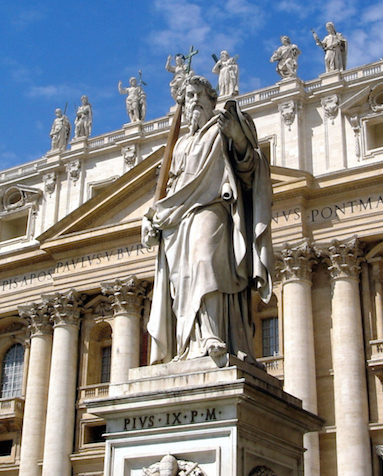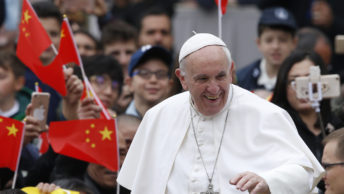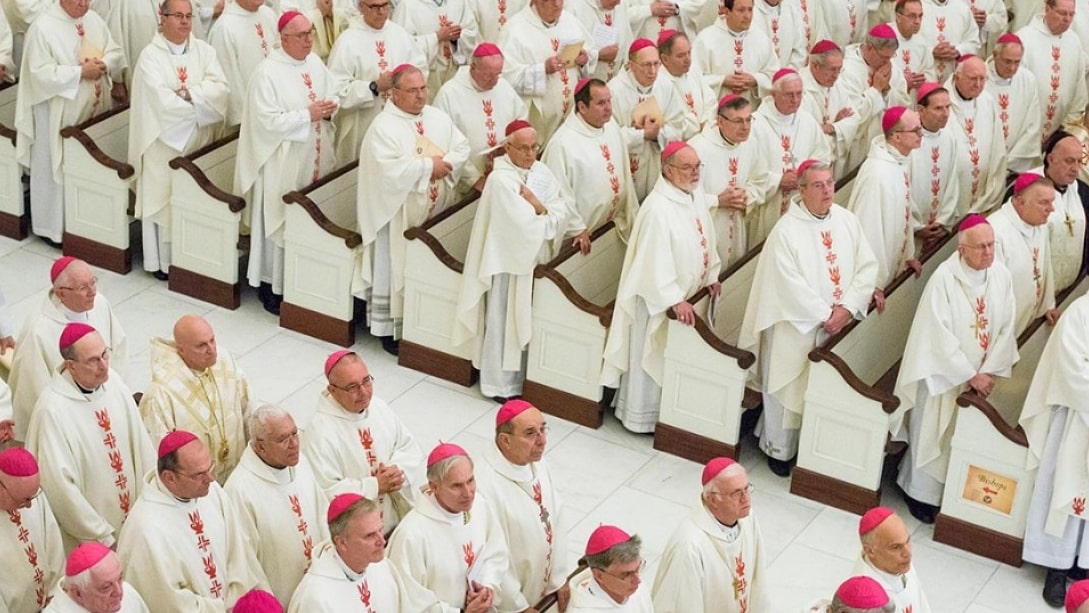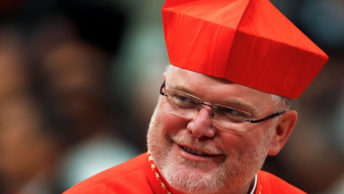In early October, a draft of a Vatican synod report on family life spoke of “welcoming [homosexuals] . . . to a fraternal place in our communities [emphasis added].”
Criticism came quickly from many quarters, including some of the bishops who had participated in the synod. Just as quickly, the wording in English was softened to “providing [homosexuals] . . . a place of fellowship in our communities [emphasis added].” In the Italian version, however, the word accogliere—literally, “welcome”—was left unchanged.
Many in the homosexual community were encouraged. For example, the leader of a gay organization characterized the synod report as “a light in the darkness—a dramatic new tone from a Church hierarchy that has long denied the very existence of committed and loving gay and lesbian partnerships.”
The synod report is only the latest of a number of indications that something is afoot in the Church regarding its teaching on homosexuality. Why this is so is not entirely clear. Some point to the influence of the group of gay priests in and around the Vatican known as the “Lavender Mafia”; others, to the dramatic change in attitude toward homosexuality that has occurred in western cultures in recent decades.
The latter thinking suggests that the Church’s “welcome” is simply a response to public opinion. That seems unlikely because, as even its harshest critics acknowledge, the Church seldom if ever never changes its teachings solely because of public opinion. Instead, it requires substantive reasons, such as a breakthrough in scientific knowledge or a more probing analysis of an issue. But no such reason exists for the contemporary acceptance of homosexuality.
Simply put, those who are pleased at the prospect of a change in the doctrine on homosexuality tend to credit the better side of human nature and the workings of the Holy Spirit, whereas the displeased are more apt to blame human cupidity and the workings of Satan. Between these two groups are many others who are not sure whether the apparent softening of the Church’s view of homosexuality represents a spiritual gain or loss but are glad to see Church leaders addressing an important issue, exchanging views, and making their deliberations more or less available to the public.
In any case, the Church’s “welcome” to homosexuals raises a serious question about the Synod on the Family: Why have Church leaders been so willing, and even eager, to revisit the Church’s teaching on homosexuality yet completely unwilling to revisit the Church’s teaching on birth control?
Clearly, birth control has been the elephant in the Synod deliberations. Too huge to be missed, yet steadfastly ignored.
By why has it been ignored? The answer is surely not that the Church’s teaching on homosexuality affects more individuals, because homosexuals represent only 2 or 3% of the population. (Kinsey’s claim of 10% is now recognized as grossly inflated.) The Church’s teaching on birth control, on the other hand, affects all married Catholic couples, a vastly larger group.
Neither can the answer be that Catholics around the world are more concerned about homosexual issues than the issue of birth control. A world-wide survey of Catholics revealed that whereas only 30% support gay marriage, 78% support the use of contraceptives.
Nor can the answer be that moral theologians now conclude that homosexual intercourse is more “natural” than heterosexual intercourse in which artificial birth control is used. Natural Law reasoning regards both forms of intercourse as “against nature”—artificial birth control because it prevents conception by chemical or mechanical means; homosexual intercourse because the participants lack the biological complementarity required for conception.
Of course, it could be argued that theologians should abandon the Natural Law model altogether. But it would be completely illogical to abandon it for homosexual intercourse but not for heterosexual intercourse that employs artificial contraceptive means, especially since biological complementarity is fundamental to reproduction.
Over the last century, billions of married Catholics have been forced to choose between observing the Church’s ban on “artificial” contraception and following their own moral reasoning. Hundreds of millions are still faced with that painful choice, most tragically the very Third World Catholics the hierarchy are otherwise so conscientious in helping. Some who disobey the Church no longer receive Communion out of fear of offending God; others leave the Church with heavy hearts.
Meanwhile, with exquisite irony, those whose consciences are less finely tuned to moral dilemmas ignore the Church’s teaching on contraception yet still attend Mass and receive Communion without ever hearing the slightest chastisement from the pulpit.
I wonder how many members of the Church hierarchy understand how dispiriting it is for heterosexual couples who have borne the burden of restraining the spontaneous expression of marital love to see the Church now “welcome” homosexuals who exercise no such restraint on the expression of theirs.
Until that understanding becomes pervasive among the hierarchy and they find the courage to revisit the issue of birth control, the credibility of their moral leadership will remain diminished. A modest first step on their part would be issuing the same official “welcome” to those who practice artificial birth control as has been issued to homosexuals.
Copyright © 2014 by Vincent Ryan Ruggiero. All rights reserved
To see more of this author’s work, visit www.mind-at-work.com








